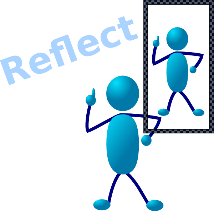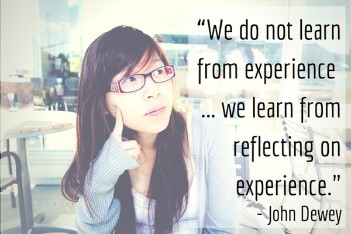Related Posts
Examining ourselves
Every seven years, we are required to conduct a rigorous self-study and assess ourselves in relation to a set of criteria established by the accrediting body for public health, the Council on Education for Public Health (CEPH). The result of our self-examination is an almost 300-page report, provision of hundreds of documents and a 2.5-day site visit, which is happening this week. Some departments also undergo additional reaccreditations by specialty organizations. The university overall is accredited by the Southern Association of Colleges and Schools Commission on Colleges (SACSCOC).
There are aspects of accreditation and reaccreditation I’d change, but generally, the processes are important to assure quality educational institutions. Students, as consumers of education, and their families, who may be paying the bill, have a right to know that a quality education is being provided. That’s especially true as the cost of education has risen in recent decades, and student debt has increased commensurately.
Self-studies are incredibly time-consuming, labor-intensive enterprises that we do while performing all our other duties. (It also is tremendously time-consuming for site visitors who assess us and other schools.) I am awed and gratified by the ways people at the Gillings School stepped up and spent time collecting, providing and reflecting upon data, such as enrollment, graduation rates, degree competencies and requirements, and then assessing how we performed on different quality criteria. We are better for it, and we will be even stronger in the future.
The accreditation system requires us to serve up evidence that we are doing what is expected of us, and that we have studied ourselves deeply and rated our own performance before being assessed by people external to the School. That’s a good thing. We are in a stronger position than many schools, because we believe in the value of good data and are committed to building data infrastructure that can be used for planning, evaluation and decision making.
Living in a peer-reviewed world
 Being immersed in reaccreditation makes me think about all the fields that don’t get subjected to these processes, and that don’t have self-study, self-reflection and self-criticism as built-in elements of institutional DNA. Most people in academia live in a peer-reviewed world in which we are used to being reviewed and assessed, for example, by those who review our articles, books and grant applications. We may steel ourselves to endure criticism, because no one loves it, and criticism from others can be sharp and painful, but we accept it, learn from it, act on it, as appropriate, and we move on. As a field, I believe it makes academics more resilient and effective. We’re less likely to believe hype and self-promotion. We’re skeptical of empty promises. We are held and hold ourselves to a standard of delivering what we promise.
Being immersed in reaccreditation makes me think about all the fields that don’t get subjected to these processes, and that don’t have self-study, self-reflection and self-criticism as built-in elements of institutional DNA. Most people in academia live in a peer-reviewed world in which we are used to being reviewed and assessed, for example, by those who review our articles, books and grant applications. We may steel ourselves to endure criticism, because no one loves it, and criticism from others can be sharp and painful, but we accept it, learn from it, act on it, as appropriate, and we move on. As a field, I believe it makes academics more resilient and effective. We’re less likely to believe hype and self-promotion. We’re skeptical of empty promises. We are held and hold ourselves to a standard of delivering what we promise.
A self-study for the President?
 In fact, no one serving in the public sector should be above scrutiny or exempt from rigorous evaluation. What if the U.S. Office of the President were asked to conduct a self-study, with external peer-reviewers performing the final assessment? What if hard, quantifiable criteria were used for assessment, so that we could judge progress along the way, and not just at the end of four-year periods? The U.S. government produces billions and billions of bytes that could be used for self-study, and turning them over to take a look at what is happening is part of what journalists do, but it’s harder today when some data are not likely to be provided voluntarily. It is different when one conducts a self-study. Some of the delusions and illusions are bound to collide with cold reality.
In fact, no one serving in the public sector should be above scrutiny or exempt from rigorous evaluation. What if the U.S. Office of the President were asked to conduct a self-study, with external peer-reviewers performing the final assessment? What if hard, quantifiable criteria were used for assessment, so that we could judge progress along the way, and not just at the end of four-year periods? The U.S. government produces billions and billions of bytes that could be used for self-study, and turning them over to take a look at what is happening is part of what journalists do, but it’s harder today when some data are not likely to be provided voluntarily. It is different when one conducts a self-study. Some of the delusions and illusions are bound to collide with cold reality.
Of course, this is undoubtedly a totally ridiculous and absurd idea, but turnabout is fair play. If we and other institutions like us can’t get away with saying, “Trust us; we’re great,” then perhaps some of the principles that undergird reaccreditation processes could be applied to those who run the government. It’s all for the good of the country and our people, making sure leadership is meeting its promises and providing data that can be reviewed by an impartial team. It may be fantasy, but I rather like the idea. Those of us in the public sector are accountable to the people. Barbara
Comments
JW, thanks so much for your comment! I love the idea of values clarification inside the Beltway! Barbara
JW
This blog shows a commitment to be open to learn and be ever better. Thanks, BR. I was struck by your suggestion, which I do not think is ridiculous or absurd at all. Of course we should see data on actions. I would like to take it a step further. What I would like to see is a values clarification and team building workshop bringing together all the powers-that-be inside the beltway. Imagine what they could achieve if they identified one or two shared values and decided to go for it on those. Now that's ridiculous and absurd, but greatness and innovation usually begin with the ridiculous, the absurd, the audacious dream the unimaginable. Yawningly safe, incremental, plodding baby steps, stupidly trying to defeat and outmaneuver opponents and unending posturing just gum up the works and block progress. Sign me up to design that workshop!


Barbara Rimer